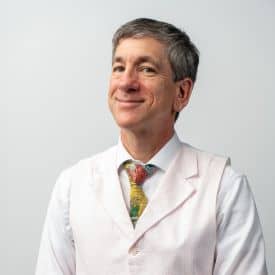Joseph Kerski
Bio
Joseph Kerski is a lifelong geographer with experience in all four major sectors of society–nonprofit organizations, private industry, government, and academia. He is passionate about all things geospatial in education, through podcasts (Thinking Spatially), videos (Our Earth channel with over 6,000 videos), 150 chapters and articles, 1,000 lessons, and 11 books authored or co-authored.
Education
Joseph earned his BA, MA, and Ph.D. in Geography from the University of Colorado.
Professional Background
Joseph currently serves as Education Manager for Esri, the world’s largest provider of GIS software and solutions. He visits 35 campuses each year around the world and gives hundreds of online presentations and short courses, promoting and supporting GIS and spatial thinking in multiple disciplines in schools, colleges, museums, libraries, and universities. He has also worked for NOAA, the US Census Bureau, USGS, and served as president of the National Council for Geographic Education.
Joseph has given two TED talks on the “Whys of Where” and has received two lifetime achievement awards for his work in GIS in education. His research focuses on the implementation and effectiveness of GIS in instruction.
Motivation for Teaching
Joseph believes that spatial thinking and the use of geotechnologies is more than a wonderful and in-demand career pathway–it is absolutely essential for building a more equitable, resilient, and sustainable world. To solve our complex and troublesome 21st Century challenges requires people who can think holistically, spatially, and critically.
Helping Students Be Successful
Joseph is firmly committed to helping students become empowered to make smart decisions in their academic journey and in their future career pathways in business, government, nonprofit, and academia through the use of geotechnologies. His instruction seeks to engage students in hands-on work with real-world issues that affect people and the planet.

